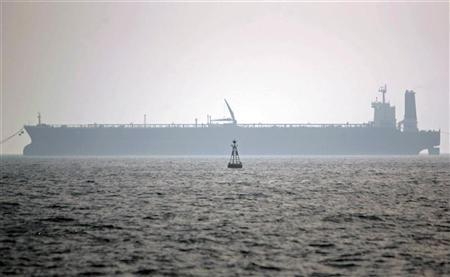
(above) An oil tanker loads gas in Assaluyeh seaport at the Persian Gulf, 1,400 km (870 miles) south of Tehran, Iran, May 27, 2006. Photo: credit Reuters/Mortezara Nikoubazi
Exclusive: Bolivia says may de-flag Iranian ships
April 18, 2012 - Reuters
By Daniel Fineren
DUBAI (Reuters) -- Bolivia could strike 15 vessels linked to the Islamic Republic of Iran Shipping Lines off its shipping register just weeks after IRISL found Bolivian replacements for their Maltese and Cypriot flags.
IRISL, its many subsidiaries and their dozens of ships have drawn sanctions from the United States, United Nations and the European Union for their suspected role in transporting military equipment for Tehran.
Merchant ships need a flag from national ship registries to gain access to most of the world's ports and many fly those of other countries - especially Panama, Liberia, the Bahamas, Malta and Cyprus - to avoid paying taxes in their home countries.
Despite a 2010 U.N. resolution on dealing with Iranian government front companies, until recently Maltese flags still fluttered at the masts of 48 of 144 IRISL vessels identified by the EU, while Cypriot colors flew above 12.
Malta delisted one Iranian tanker, the M.T.Tour, after reports the ship had loaded up with sanctioned Syrian crude in late March, and threatened to de-flag others found violating EU rules.
With Malta and Cyprus coming under increased pressure to stop flagging Iranian government-linked ships, there has been a flurry of registrations in the last few months half a world away in landlocked Bolivia by two new front companies.
The head of the Bolivian registry told Reuters the authority was not aware that any of the vessels registered over the last few weeks were Iranian, but if evidence of sanctions-violating vessels emerged, Bolivia would remove them from the list.
"We don't have any evidence that these vessels are Iranian," Zoilo Roca Kikunaga, director of the Bolivian International Ship Registry, said in an email to Reuters.
"If any of the ships are in breach of sanctions imposed by the U.N., or other group of countries, its registration will be cancelled."
Vessel and company names are frequently and easily changed.
IRISL plays a complex cat-and-mouse game by frequently shifting the official registered owners, flags and names of vessels in an attempt to conceal their connection to the firm Washington and Brussels say is a key supply network for what they suspect is an Iranian nuclear weapons program.
Eight formerly Cyprus-flagged vessels and six former Maltese-flag fliers are showing Bolivian flags after changing many of their ship names and registering them under the names of the Andulena Corporation and the Auris Marine Company - two apparently new front companies.
A spokesman for the Bolivian shipping registry in La Paz told Reuters that the registration focuses on the safety of the ship, rather than an in-depth investigation of ownership.
But if the applications are found to be fraudulent and IRISL or one of its subsidiaries the owner, then the vessels would be struck off the registry and the ship owners would not get back their registration fee.
"If they have created a company only to cover up links to U.N.-sanctioned companies then of course we would remove them," he said.
Although the three oil tankers registered by Auris Marine kept their names when submitting their applications to Bolivia, most of those registered by Andulena were changed to female Spanish names.
But their IRISL ownership can still be traced through their International Maritime Organization (IMO) numbers - which cannot be reassigned to other vessels.
Cross-referencing of IMO numbers by Reuters of the list of vessels supplied by Bolivian authorities shows that all the vessels have been identified by the U.S. Office of Foreign Assets Control as IRISL-owned and are on the U.S. weapons of mass destruction proliferators (NPWMD) blacklist.
(Editing by William Hardy and Dale Hudson)